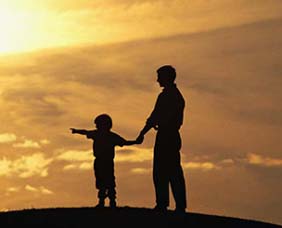 “In the end, a story is never going to make a damn bit of difference to the dead.” —The Yiddish Policeman’s Union, Michael Chabon
“In the end, a story is never going to make a damn bit of difference to the dead.” —The Yiddish Policeman’s Union, Michael Chabon
When I’m gone, son, tell me the story of the day you collided with the opponent’s keeper, his knee to your temple, and collapsed, face down, on the pitch until the EMS crew rolled you off the field on a gurney.
Tell me the story of how, during the month you waited to play again, you tried to rally the flagging team and inspire them to turn around their season.
Tell me the story of the coach who failed to recognize your talents and dedication—as player and leader—so I can rally to your defense—if the dead can come to the defense of a good son.
Tell me the story of your trip to Quail Ridge Books, across the street from North Carolina’s Governor’s School East, your third personal bookstore, after Malaprop’s in Asheville and the Strand in Manhattan—but the first that was yours alone, your discovery to share with me, a bookstore lover since the 1960s. Tell me about discovering Jonathan Lethem there, his novel The Fortress of Solitude.
And tell me again about the artist, an American woman who had lived in Gaza, who spoke to NCGSE students and staff that summer about the Israeli occupation. Tell me about how you stepped out of the auditorium to call me, to check facts so you could question and challenge her.
You already knew a thing or two about Israel. When you were four, our family—the five of us—spent two months there. After your sisters were grown and busy with their lives, you, mom, and I returned to Israel for another three-week stay. You’d heard me say many times that the three years I lived in Israel—1976-1979—were defining years of my adult life.
Even though, by the end of your junior year, you’d grown critical of Israeli treatment of Palestinians, you nevertheless felt compelled to challenge—for the benefit of your peers, counselors and faculty, few of whom knew much about the complex history and situation of Israel, let alone anything about Jewish history—the one dimensional story they were being told.
Tell me the story of conviction and courage and the pursuit of truth the summer of your intellectual and artistic awakening. Tell me the story. I don’t care if, because I’m dead, it won’t make a difference to me.
You need not tell me the story, if it’s too painful to tell, of your expulsion, just a few nights before the conclusion of the six-week program.
Sneaking with a friend off campus after curfew to meet a few of his friends for a late-night snack at McDonald’s. Of course, you were caught. Of course, you confessed and apologized.
You were ashamed, heartbroken, apologetic. Expelled: that dirty word was now yours—and mine.
I wanted to hold your pain, to ease it. Yes, you’d made a costly mistake. Yes, you had to suffer the consequences. But you’d responded, when you were caught, in an honorable way. I knew it, your mother knew it, your counselors knew it, and even the director of NCGSE knew it. He told me so when he called at four in the morning.
This unfortunate experience, too, contributed to the deep learning you experienced that summer. You had entered a new period of your life fueled by curiosity and passion for literature, politics, philosophy, art, and steadied by a sense of what it means to live by one’s words (say, an honor code).
Tell me these stories, and tell me other stories I lived with you. Tell me stories you lived apart from me and later, on a phone call or a visit, shared, and tell me the stories that you never told me, including, if not especially, stories that unfold after I move beyond reach.
The stories of your days, spoken into the air, projected from a mountain top, Mt. Pisgah or Bear, or sung over the ocean, from Avon or Ventura, either beach, either coast we loved—don’t stop telling them.
Say them aloud or to yourself when a thought is sparked by the smell of cilantro or a glance at a family photo. (The photographer, I am usually absent from family photos, preparing even then to be among the missing.)
“In the end, a story is never going to make a damn bit of difference to the dead,” writes Michael Chabon, one of our favorite authors, in The Yiddish Policemen’s Union, one of our favorite novels.
But this: The dead, when they’re dead, aren’t the dead any more. Only the living speak of the dead, only the living speak to the dead.
If Chabon is wrong, and when I’m dead I will be able to receive if not exactly hear (the physics of sound and physiology of hearing may not apply) the stories, your stories will be the tides of hope and disappointment, talent and obstacles, drive and redirection and accomplishment on which I—or whatever replaces I when the complex system of this one human life is simplified, shut down—will swell and subside.
“A story is never going to make a damn bit of difference to the dead.”
Tell me your stories, son: determination, courage, honor, discipline, creation, grief, delight. Don’t stop telling them until we know whether Chabon’s right, whether we live by the light of fiction, the light of art, or whether art—like science, like philosophy, like love—illuminates one room, one heart only to deliver us to the deeper dark.










